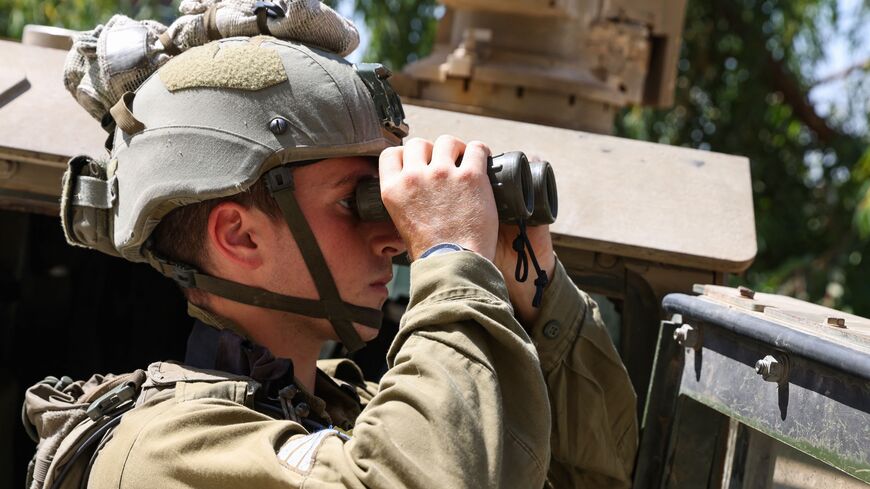BEIRUT — The Israeli army launched more than 15 artillery shells toward Lebanese territory on Thursday in response to two rockets fired from inside Lebanon toward northern Israel, state media outlets reported.
The Lebanese National News Agency reported early on Thursday that one rocket was fired from the locality of Bastra, between Kfarchouba and el-Mari in the south toward Israel.
According to security sources who spoke to Reuters, one rocket fell inside Lebanese territory in the village of Wazzani and the second in Israel close to the disputed village of Ghajar.
The Israeli army initially said it was aware of an explosion near Ghajar, saying it was caused by an old land mine. But after its forces headed to the site of the blast, an IDF statement explained, “It emerged that a launch was carried out from Lebanese territory that exploded adjacent to the border in Israeli territory.” The military responded by striking the area from which the rockets were launched.
So far, no group has claimed responsibility for the rocket attack from Lebanon.
The Hezbollah-affiliated Al-Manar TV said later in the day that calm had been restored to the villages of Halta, Kfarchouba and Kfarhamam after the Israeli army pounded a hill only three kilometers away from houses. It did not provide further details.
Since its last war with Israel in 2006, the powerful Hezbollah movement has occasionally engaged in scuffles with Israel near the border. The two sides have each claimed to down each other’s drones, most recently last month when Hezbollah said it shot down an Israeli drone over Lebanese territory.
In April, the border saw the heaviest rocket fire since the 2006 war, when Israel responded by shelling southern Lebanon. Hezbollah said Palestinian militants were behind the rocket attacks.
The local press reported over the weekend that Israel has erected a fence to the north of Ghajar, effectively cutting off the village from Lebanon. Ghajar lies on the UN-drawn Blue Line separating Israel from Lebanon and is split into Lebanese and Israeli sides.
In a Tuesday tweet, the Lebanese Foreign Ministry condemned what it described as “Israeli attempts to annex” Ghajar and the prevention of Lebanese citizens from entering the northern part of the village in violation of UN Resolution 1701 that ended the 2006 war.
Hezbollah also denounced Israel’s actions in Ghajar. A statement from the paramilitary group on Thursday, coinciding with the rocket launches, read, “These dangerous measures and significant developments represent a complete occupation of the Lebanese section of Ghajar, enforced by the use of arms and the imposition of a fait accompli.”
The tensions around Ghajar also coincide with a heated situation in Shebaa Farms, a small area on the Lebanese-Syrian border and the Israeli-occupied Golan Heights. Israel captured it from Lebanon in the 1967 war. The Lebanese government insists the territory is Lebanese and illegally occupied by Israel.
Israel claimed in early June that Hezbollah had erected tents inside Shebaa Farms, but later said that one of the tents has been evacuated. Hezbollah has not commented on the Israeli reports.
Later in June, Israeli forces fired tear gas at Lebanese protesters near Kfarchouba. The protests erupted in solidarity with a Lebanese farmer who was defending his land against Israeli bulldozers in the area.







